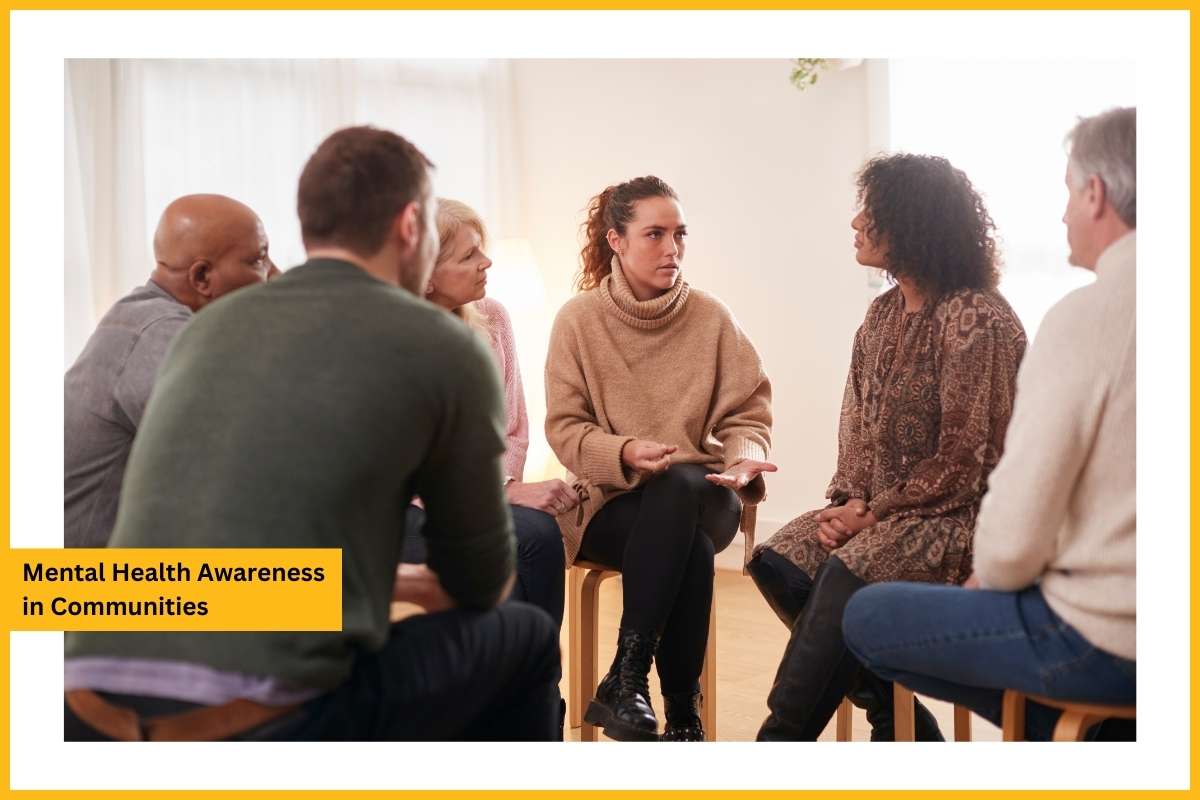In recent years, mental health has garnered increasing attention across various platforms, but the conversation still lacks the depth and reach it deserves. Mental health awareness in communities is crucial for dismantling stigma, promoting understanding, and providing support to those affected by mental health issues. This article explores the importance of mental health awareness, the barriers to effective communication, and actionable strategies for fostering a supportive environment within communities.
Understanding Mental Health
Mental health encompasses our emotional, psychological, and social well-being. It affects how we think, feel, and act, influencing how we handle stress, relate to others, and make choices. Mental health issues can manifest in various forms, including anxiety disorders, depression, bipolar disorder, and schizophrenia. Unfortunately, many individuals still suffer in silence due to societal stigma, misconceptions, and a lack of information regarding mental health conditions.
The Importance of Mental Health Awareness in Communities
Raising awareness about mental health within communities serves several purposes:

- Breaking Down Stigma: Stigma surrounding mental health can prevent individuals from seeking help. When communities prioritize mental health awareness in communities, they create an environment where people feel safe to express their struggles without fear of judgment.
- Encouraging Open Dialogue: Open conversations about mental health normalize the topic, making it easier for individuals to share their experiences and seek support. This can be achieved through workshops, seminars, and community events focused on mental health education.
- Promoting Early Intervention: Awareness initiatives can educate community members about the signs and symptoms of mental health issues. Early detection and intervention can lead to better outcomes for individuals facing mental health challenges.
- Building Support Networks: Communities can provide vital support systems for those struggling with mental health issues. By fostering a culture of understanding and empathy, community members can offer assistance, whether through informal support groups or professional resources.
Barriers to Mental Health Awareness in Communities
Despite the growing recognition of mental health issues, several barriers hinder effective communication and understanding:
- Lack of Education: Many individuals lack fundamental knowledge about mental health conditions, leading to misconceptions and fear. This gap in education can perpetuate stigma and prevent meaningful discussions.
- Cultural Differences: Cultural beliefs and practices can influence how mental health is perceived and addressed. In some cultures, mental health issues may be viewed as a personal weakness or a source of shame, discouraging individuals from seeking help.
- Limited Resources: Communities may have insufficient resources, such as mental health professionals, facilities, or support groups, which can hinder effective mental health awareness initiatives.
- Negative Media Portrayals: Media representations of mental health can often be misleading or sensationalized. These portrayals can contribute to fear and misunderstanding, further complicating the conversation around mental health.
Strategies for Promoting Mental Health Awareness in Communities
To effectively promote mental health awareness in communities, a multi-faceted approach is necessary. Here are several strategies to consider:
1. Education and Training
Implementing educational programs that target various community members—such as teachers, employers, and healthcare providers—can enhance understanding of mental health issues. Training sessions can equip these individuals with the tools to recognize signs of mental health challenges and provide appropriate support.
2. Community Events and Campaigns

Hosting events focused on mental health awareness can engage community members in meaningful discussions. Activities like mental health fairs, workshops, and panel discussions can attract diverse audiences and promote dialogue. Campaigns that utilize social media, local newspapers, and community boards can help spread awareness and encourage participation.
3. Support Groups
Establishing support groups within communities can offer safe spaces for individuals to share their experiences and feelings. Peer support groups can be particularly effective, as they foster a sense of belonging and understanding among participants. Connecting individuals with similar challenges can also promote resilience and hope.
4. Collaboration with Local Organizations
Partnering with local mental health organizations can enhance resources and support for community initiatives. These organizations can provide training, materials, and expertise to facilitate effective mental health awareness in communities. Collaborations can also help in reaching underserved populations and tailoring initiatives to their unique needs.
5. Utilizing Technology
In today’s digital age, leveraging technology can be an effective way to promote mental health awareness. Online platforms can host webinars, virtual support groups, and informational resources. Social media campaigns can reach a broader audience and engage younger community members, who are often more active online.
The Role of Individuals in Mental Health Awareness
While community initiatives are essential, individual efforts also play a critical role in fostering mental health awareness. Here are some ways individuals can contribute:

- Educate Yourself: Understanding mental health issues and staying informed about resources available can empower individuals to help others effectively.
- Speak Up: Use your voice to advocate for mental health awareness in your community. Sharing personal experiences can encourage others to open up and seek help.
- Offer Support: If you notice someone struggling, offer a listening ear or help them connect with appropriate resources. Sometimes, just knowing someone cares can make a significant difference.
Conclusion
Mental health awareness in communities is a vital aspect of creating a supportive environment for individuals facing mental health challenges. By breaking down stigma, promoting education, and encouraging open dialogue, communities can foster understanding and empathy. Overcoming barriers and implementing effective strategies will empower individuals to seek help and support, ultimately leading to healthier communities. It’s time for all of us to take an active role in promoting mental health awareness in our communities, ensuring that no one has to face their struggles alone.
Did you find this article helpful? Visit more of our blogs! Business Wolf Magazine






